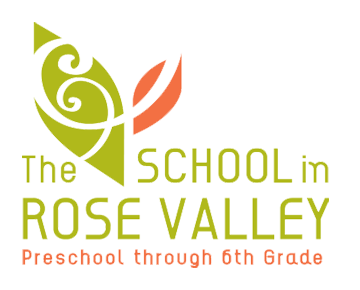The Middle Circle (MC) third and fourth graders took a trip back in time on Monday as they participated in an archaeological dig at the house of Paula and Robert Healy of Rose Valley. The Healy’s property houses the original schoolhouse of The School in Rose Valley. Archaeologist and SRV alumnus, Stephen Israel, oversaw the dig. Mr. Israel is the 2012 recipient of the William B. Marye Award for particularly outstanding and lasting contributions to several areas of archeology; and in 2007, the Archeological Society of Virginia presented him with their Out-of-State Award for Outstanding Service to the Commonwealth of Virginia Archeology.
I asked one of the students, Matt, to walk me through the procedure. He said that we were supposed to draw soil samples using shovels and trowels in buckets from one of four sites on the property, and then sift through the soil looking for artifacts, using one of the sifting trays, which were suspended from a metal tripod. He instructed, “First you shake out all of the loose dirt, and then you look for anything that is not a twig, rock, or dirt clump that didn’t fall through the sifter.” They came across such treasures as pieces of pottery with geometric designs, and hooks nails from the early 20th century. These artifacts were then collected in labeled bags that corresponded to one of the four sites. Mr. Israel will be taking the artifacts back to his Baltimore lab to be catalogued and analyzed.
Walking back to school along one of the backyard trails on that have been used by Rose Valley residents for centuries, another MC student, Ellie, clarified for me that “it was much more about the process than finding something.” It really is about the process. This process of learning by doing has deep roots in human history. Confucius, China’s most famous teacher, philosopher, and political theorist wrote, “I hear, I know. I see, I remember. I do, I understand.” The philosopher Johann Pestalozzi argued that children should learn through activity. In the early Twentieth Century John Dewey challenged educators to develop educational programs that would not be isolated from real life experiences ; and Maria Montessori felt that, “Education is a natural process spontaneously carried out by the human individual, and is acquired not by listening to words but by experiences upon the environment.” More recently, David Kolb wrote “Learning is the process whereby knowledge is created through the transformation of experience.”
Students were truly learning through experience today. The facts that they gathered and the skills acquired today cannot be found in any textbook. The lessons learned were numerous. Some students were wondering why Mr. Israel wanted us to take measurements in centimeters, leading to a discussion of the use of the metric system in science. We uncovered several different layers of soil using an auger, which gave us insight into the geologic history of this particular parcel of land. Students had to work together, make decisions, and problem solve. Most of all we got to get dirty and have some fun.
I am so grateful to the Healys, Mr. Stephen Israel, Andy Saul, Frank Mosca, the MC teachers, Diane Luckman and O’Brien Wolff, Catalina Rios, and the students in the SRV Middle Circle for including me in such a wonderful project.
1 Dewey, J. (1938). Experience and education. New York: The Macmillan Company.
2 Montessori, Maria. “The Montessori Method.” World of Ideas. 7th ed. Boston: Bedford/St. Martins, MA. 284-94. Print.
3 Association for Experiential Education. (2002). What is the definition of experiential education? Boulder, CO: Author.
4 Smith, M. K. (2001, 2010). ‘David A. Kolb on experiential learning’, the encyclopedia of informal education. [http://infed.org/mobi/david-a-kolb-on-experiential-learning/. Retrieved: 9 Nov., 2015.


